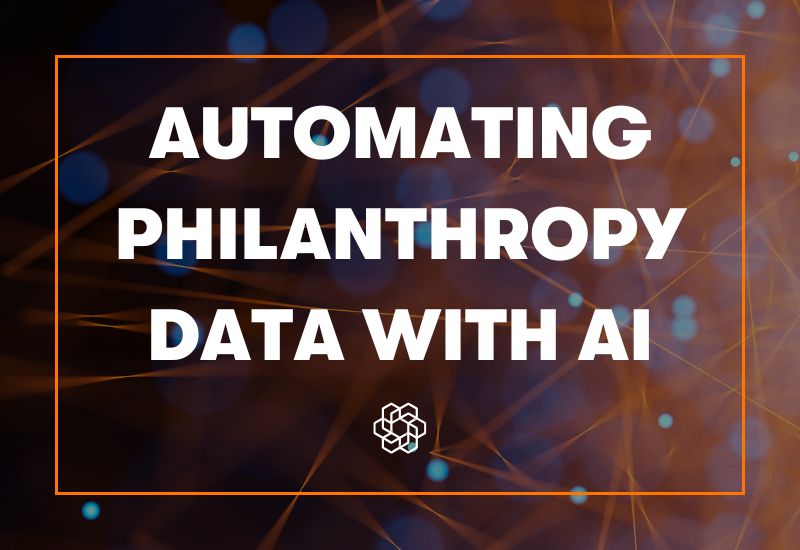This November saw the publishing of The Routledge Handbook of Artificial Intelligence and Philanthropy. The academic reference collection presents pioneering works on the use of artificial intelligence to further philanthropy, featuring among other contributions a case study co-authored by Catalyst's Marko Galjak, PhD, Director of Technology and Data Scientist, Nikola Milinković.
In the chapter titled A Case Study on AI Usage for Collecting Philanthropy Data in the Western Balkans, our scientists outline the steps we are taking in transitioning to AI-based data collection for the Giving Balkans database.
In the work, you will find details on methodology, tools and the processes that work to scale data gathering output with demonstrated reliability and by orders of magnitude. The seminal work of Catalyst's data and tech teams is not yet in its complete stage, accounting for rapidly developing AI tech; nonetheless, it provides solid groundwork that could be foundational not just for facilitating philanthropy, but for the future of data processing and research overall.
The Routledge Handbook is published under Creative Commons and is available to access for free.
Download The Routledge Handbook of Artificial Intelligence and Philanthropy (2024) as .pdf
Or access our case study and explore Catalyst's use case of AI in philanthropy:
Download A Case Study on AI Usage for Collecting Philanthropy Data in the Western Balkans (2024) as .pdf
According to Routledge, this handbook acts as a catalyst for the dialogue between two ecosystems with much to gain from collaboration: artificial intelligence (AI) and philanthropy. Bringing together leading academics, AI specialists, and philanthropy professionals, it offers a robust academic foundation for studying both how AI can be used and implemented within philanthropy and how philanthropy can guide the future development of AI in a responsible way.


Leave a comment